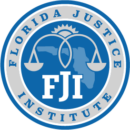West Palm Beach, Fla. – Southern Legal Counsel, the American Civil Liberties Union (ACLU) of Florida, the ACLU of Florida Palm Beach County Chapter, and Florida Justice Institute filed a federal lawsuit challenging a West Palm Beach ordinance that prohibits asking for donations in certain public spaces. The lawsuit, filed today in the U.S. District Court for the Southern District of Florida, West Palm Beach Division, also seeks a preliminary injunction against enforcement of the ordinance.
The lawsuit and injunction challenge an ordinance passed in December 2020 by the West Palm Beach City Council. The ordinance prohibits anyone from asking for money or other items of value in the downtown and Northwood areas. The ordinance is enforceable regardless if the request is “spoken, written, or printed word, or by other means of communication.” Under the direction of the City and the Downtown Development Authority, police and private security guards have threatened West Palm Beach residents Rosa Williams, Gary Frashaw, and Thomas Hyland with arrest if they continue to violate the ordinance.
“This ordinance is a clear violation of West Palm Beach residents’ First Amendment rights,” said Jim Green, an attorney for the Plaintiffs and a member of the ACLU of Florida Palm Beach Chapter. “When harmful ordinances like this are put in place, it chills the rights of the city’s most vulnerable residents and charitable groups. Courts across the country, including state and federal courts in Florida, have been abundantly clear— these cruel and unjust ordinances are unconstitutional.”
Prior to the adoption of the ordinance, Southern Legal Counsel, the ACLU of Florida Palm Beach County Chapter, and the ACLU of Florida sent a letter to the city council warning the City that the ordinance was unconstitutional. The letter addressed the ordinance’s content-based language and how it imposes restrictions on protected speech. As reiterated in the 2015 Supreme Court case Reed v. Town of Gilbert, the First Amendment prohibits the government from restricting expression “because of its message, its ideas, its subject matter, or its content.”
“Since the landmark Supreme Court ruling in Reed v. Town of Gilbert, every ordinance that prohibits charitable solicitation that has been challenged in federal court has been found unconstitutional, including ordinances like West Palm Beach’s ordinance,” said Jodi Siegel, Executive Director of Southern Legal Counsel. “Courts across the country and in Florida have recognized people’s right to ask for help. Yet the West Palm Beach City Council proceeded to adopt the unconstitutional ordinance despite overwhelming legal precedent.”
Prior to filing the lawsuit, the ACLU of Florida submitted public records requests to obtain documents relevant to the ordinance. One of the documents the organization obtained was a legal memorandum from an assistant city attorney analyzing the unconstitutionality of the City’s anti-solicitation ordinance.
“A legal memo written by an assistant city attorney confirms that the City was warned this type of ordinance could likely not survive constitutional scrutiny, “ said Jackie Azis, staff attorney for the ACLU of Florida. “It is past time for cities to stop enacting these blatantly unconstitutional ordinances and knowingly violating the free speech rights of their residents.”
In the lawsuit and motion for a preliminary injunction, the advocacy groups challenge the constitutionality of the ordinance and demand an end to the enforcement of its provisions.
This lawsuit comes on the heels of other cases brought against Florida municipalities which have resulted in laws criminalizing requests for charity being struck down, enjoined from enforcement, or repealed in cities such as Fort Lauderdale, Pompano Beach, Fort Myers, Tampa, and Miami.
The case is Williams v. City of West Palm Beach, Case. No. 21-CV-81537 (S. D. Fla.).
